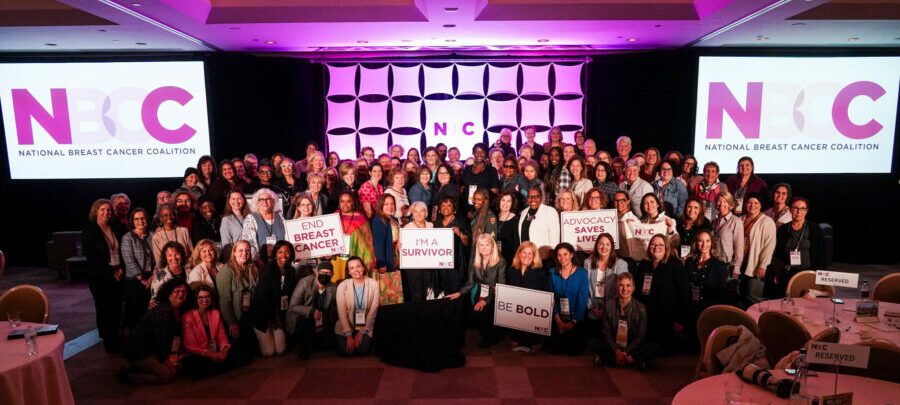
The 2026 Advocate Leadership Summit will be held April 25 – 28, 2026 in Washington, DC at a new hotel location: the Washington Marriott at Metro Center! Mark your calendars and stay tuned for more information!
For more than 30 years, NBCC has been a leader in supplying the education, tools and training that empowers breast cancer survivors and other advocates to make their own informed decisions and to take leadership roles in clinical, scientific, policy and legislative decision making that affects breast cancer research, healthcare and public policy.
NBCC’s Advocate Leadership Summit is an annual gathering of breast cancer advocates from across the country and around the world. Participants attend sessions on the latest scientific research, training in effective advocacy strategies and presentations by respected researchers in the field, grassroots leaders from around the country and prominent public policy experts. The Advocate Leadership Summit is the premier breast cancer advocacy event that attracts women and men from the U.S and other countries. Attendees include breast cancer survivors, caregivers, patient advocates and many others who are affected by breast cancer.
In 2025, NBCC hosted the Summit from May 3-5. The program included numerous plenaries and skill-building workshops on topics such as evaluating endpoints in cancer trials, how to make the most of meetings with congressional representatives, and the ways in which advocacy can move forward in the current political climate. The Summit culminated in our annual Lobby Day on May 6th, when advocates gathered on Capitol Hill for a rally to protect health care funding, followed by nearly 200 meetings with their congressional representatives to fight for NBCC’s mission to end breast cancer.
View the full 2025 Advocate Leadership Summit agenda here.
View pictures from the 2025 Summit and Lobby Day here and below.
